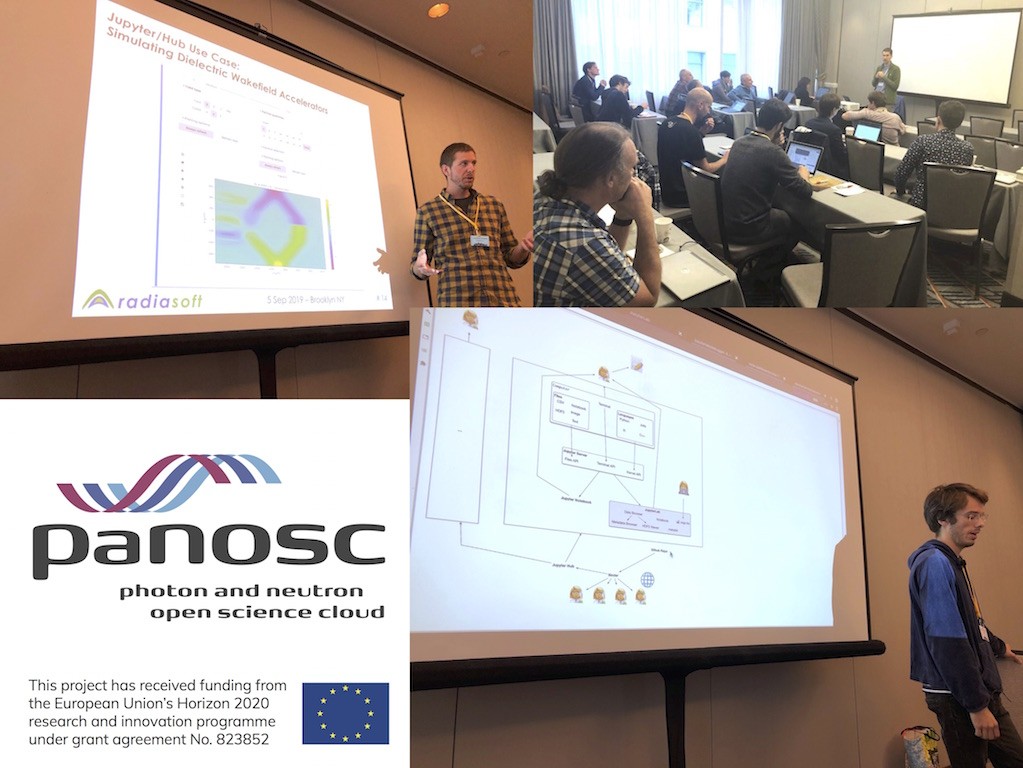Material from the PaNOSC Jupyter workshop at ICALEPCS 2019 now online
The PaNOSC Jupyter workshop took place on October 5th at ICALEPCS2019 in New York City. Download the event's material from this link >> http://bit.ly/31Vo5wS(opens in new window) The satellite meeting started with a brief introduction by Hans Fangohr – leader of WP4: Data Analysis Services – to the Jupyter Notebook* and the ecosystem of tools that are based on it, i.e. JupyterHub, JupyterLab, NBDIME, NBVAL, Binder. Status updates from Soleil, CERN, European Southern Observatory, J-PARC MLF, Max IV, ESS and the Brookhaven National Laboratory allowed different facilities and participants to show the current, planned or desired use of Jupyter at their facilities or elsewhere, presenting both their positive and negative experiences to help others in their planning. A two-hour tutorial gave an overview of the JupyterLab notebook interface to show how it can be used for more than just editing notebooks, and how to create a plugin that adds custom functionality to the interface. In addition, existing extensions that target the scientific ecosystem were shown, including support for exploring HDF5 files. The tutorial ended with an exploration of new features coming to JupyterLab, including real time collaboration. After an overview by RadiaSoft representative, Dr. Jonathan Edelen, on the possible uses of Jupyter for the simulation of particle accelerators, the workshop ended with a Q&A session. *Jupyter Notebook and associated tools from Project Jupyter (such as JupyterLab, JupyterHub, BinderHub, Binder, nbval, nbconvert, nbmerge) are becoming a key tool in data science, computational science and data analysis. They are increasingly used at research facilities. Users include support teams, facility scientists and users.



